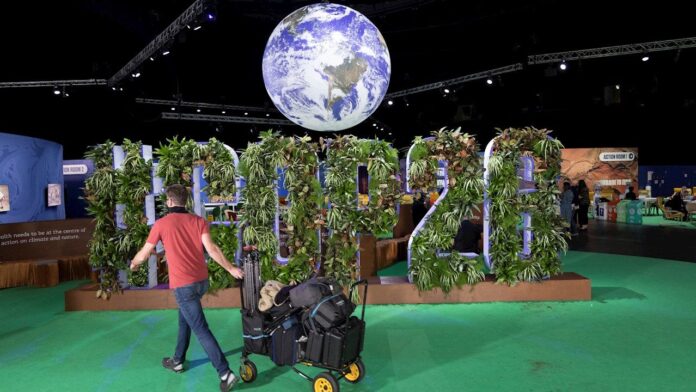From October 31 to November 12, the twenty-sixth edition of the COP (Conference of the Parties) of the UN will take place in the city of Glasgow, Scotland. According to the recent report of the IPCC (Intergovernmental Panel on Climate Change) the world scenario looks grim, more than ever before. We have only a decade to reduce CO2 emissions by at least half, otherwise we will reach a warming of 1.5 degrees Celsius. With this temperature there would be a serious devastation of nature, because most living beings would not adapt and could disappear; it would also dramatically affect humanity, with millions of climate migrants, because their regions will have become too hot to live and produce; moreover, there could be the intrusion of a wide range of viruses that would surely sacrifice an unimaginable number of human lives, much more than the current Covid-19.
Because of what has already accumulated in the atmosphere, as CO2 remains there for 100 to 120 years, the changes we make now will not change the increasing course of extreme events caused by this accumulation; on the contrary, they tend to get worse as we have seen from the flooding of New York City’s ocean waters. Not even geoengineering, as proposed by science, would stop the level of climate change. This is why many climate scholars maintain that we are too late and there is no way back. This realization has caused many scientists to become skeptical and techno-fatalists. However, they maintain that if we can no longer change the course of increasing warming, we can at least use the available science and technology to minimize its disastrous effects. The current climate compared to the one to come will seem mild to us.
The IPCC report is emphatic in stating that this situation is the absolutely certain consequence of human activities that are harmful to nature (deforestation, excessive use of fossil energy, erosion of biodiversity, increasing desertification and poor treatment of the soil, etc.). It is imperative to recognize that these climatic upheavals have little to do with the vast majority of impoverished humanity, who are victims of the prevailing system. Unfortunately, this system produces a double injustice: an ecological one by devastating entire ecosystems, and a social one by increasing poverty and misery worldwide. The real culprits are globalized industrialist and extractivist megacorporations that do not respect the limits of nature and that start from the false premise of unlimited growth/development because natural resources would also be unlimited. Pope Francis’ encyclical Laudato Sí declares this assumption to be a lie (n.106).
What to expect from COP26 in Glasgow? Many question whether there will be sufficient consensus to maintain the Paris Agreement, with its commitment to reduce CO2 and other greenhouse gas emissions to zero by 2050. We know, however, from the previous COPs, that the agenda is controlled by the agents of the mega-corporations, particularly those in the oil and food sectors, among others. They tend to maintain the status quo that benefits them and oppose fundamental transformations that would force them to also change their mode of production and reduce their profits for the sake of the planetary general good. This is how they create obstacles to consensus and put the brakes on more drastic measures in the face of the evident deterioration of the Earth’s climate balance.
Avoiding a long argument, I would simply say what the Earth Charter (2003) and the two ecological encyclicals of Pope Francis, Laudato Si: on the care of the common home (2015) and Fratelli tutti (2020) state in all seriousness: we must operate a “profound ecological conversion” because “we are in the same boat; either we all save ourselves or no one is saved” (Earth Charter, preamble and final: Fratelli n.30.34). It happens that the theme: how is our relationship with nature, of plundering or of care? Of preservation of its biocapacity or exhaustion of its goods and services necessary for our life and survival? Since it is not posed, it is also not considered and answered.
Earth and nature, however, constitute the Great Player. On their preservation depend all the other projects of the players and the future of our civilization. The analysis of the degraded situation of the Earth, undeniable and rampant, is never considered in the various COPs. Centrality is occupied by the prevailing political economy, the dominant player, the real cause of climate imbalances. It is never called into question.
The real savior player is nature, the Earth-Gaia, but they are totally absent in all COPs and will be, we presume, also in Glasgow. From Fratelli tutti’s perspective: either we move from the dominus paradigm, the human being disconnected from nature and perceiving himself as its owner and dominator, to the frater paradigm, the human being feeling part of nature and brother and sister with humans and all other beings of nature, or else we will be heading for the worst. This is the quaestio stantis et cadentis, that is to say, the fundamental question, without which all other questions are invalidated.
This time, the future is in our hands. As the Earth Charter states at the end: “as never before in history, our common destiny calls us to seek a new beginning. Do we go back to the old, terrifying way for most of humanity, or do we have the courage for a “new beginning,” as opposed to the billionaires’ Great Reset? We want a true “new beginning” beneficial for the whole community of life, especially for the Common House and for us, its inhabitants, nature included. It is the condition of our continuity on this small and splendorous planet Earth.








